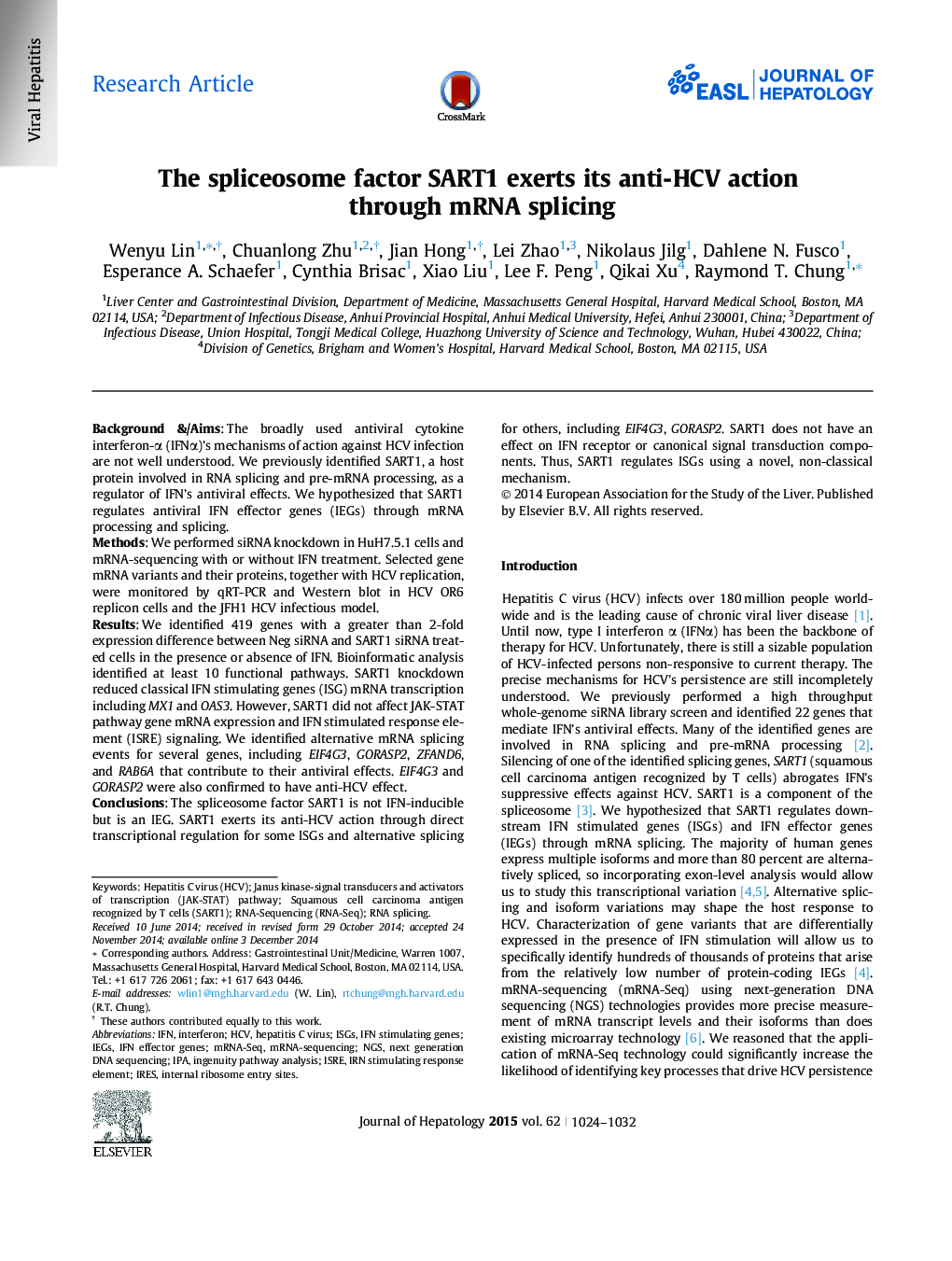| Article ID | Journal | Published Year | Pages | File Type |
|---|---|---|---|---|
| 6103014 | Journal of Hepatology | 2015 | 9 Pages |
Background &/AimsThe broadly used antiviral cytokine interferon-α (IFNα)'s mechanisms of action against HCV infection are not well understood. We previously identified SART1, a host protein involved in RNA splicing and pre-mRNA processing, as a regulator of IFN's antiviral effects. We hypothesized that SART1 regulates antiviral IFN effector genes (IEGs) through mRNA processing and splicing.MethodsWe performed siRNA knockdown in HuH7.5.1 cells and mRNA-sequencing with or without IFN treatment. Selected gene mRNA variants and their proteins, together with HCV replication, were monitored by qRT-PCR and Western blot in HCV OR6 replicon cells and the JFH1 HCV infectious model.ResultsWe identified 419 genes with a greater than 2-fold expression difference between Neg siRNA and SART1 siRNA treated cells in the presence or absence of IFN. Bioinformatic analysis identified at least 10 functional pathways. SART1 knockdown reduced classical IFN stimulating genes (ISG) mRNA transcription including MX1 and OAS3. However, SART1 did not affect JAK-STAT pathway gene mRNA expression and IFN stimulated response element (ISRE) signaling. We identified alternative mRNA splicing events for several genes, including EIF4G3, GORASP2, ZFAND6, and RAB6A that contribute to their antiviral effects. EIF4G3 and GORASP2 were also confirmed to have anti-HCV effect.ConclusionsThe spliceosome factor SART1 is not IFN-inducible but is an IEG. SART1 exerts its anti-HCV action through direct transcriptional regulation for some ISGs and alternative splicing for others, including EIF4G3, GORASP2. SART1 does not have an effect on IFN receptor or canonical signal transduction components. Thus, SART1 regulates ISGs using a novel, non-classical mechanism.
